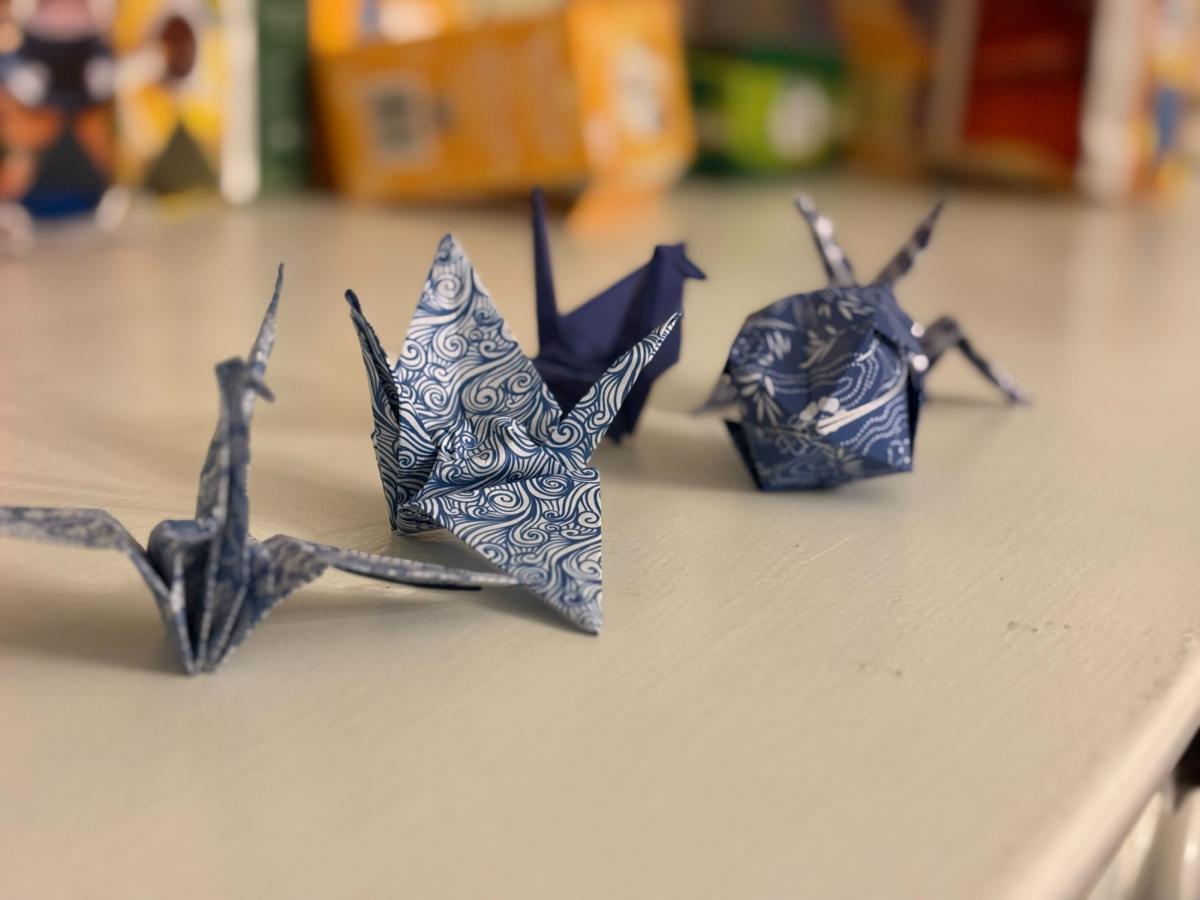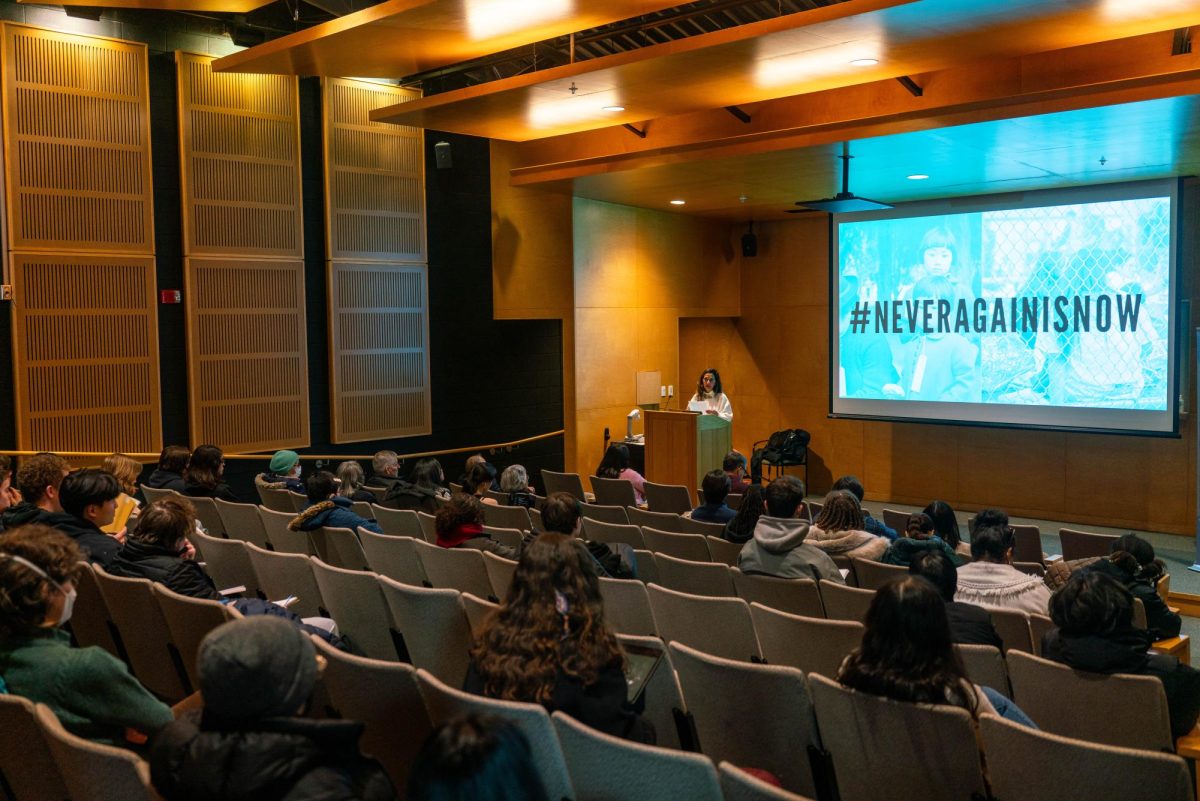On Sept. 18, College third-year Isabel Handa will present a workshop teaching the basics and choreography of hula. In collaboration with Oberlin Shansi, Handa was awarded the AAPI Experience Grant to learn about this Hawaiian cultural practice and engage with the AAPI community at Halau Ka Pua Mae’ole Kuikanani, a hula dance school in Cleveland.
Starting in the COVID-19 era, when anti-Asian hate was increasing, Shansi Senior Director Ted Samuel launched the AAPI Experience Grant, a $300 award supporting student projects exploring experiences of Asian, Asian American, and Pacific Islander communities. Along with Oberlin Shansi, the grant committee includes the Multicultural Resource Center, Comparative American Studies, the Asian American Alliance, and As I Am. Shansi’s goal was not to move on from the violence and discrimination but to actively work toward investing in resources that would provide an uplifting platform for students of the Asian diaspora. This includes providing financial support to allow students to pursue projects and share stories that would be more difficult to achieve otherwise.
“We wanted to create a resource that’s meaningful to students of the Asian diaspora,” Samuel said. “This grant was our path to invest in student projects that explore Asian American experiences, histories, activism, and voices in North America.”
Handa collaborated with Shansi and received the grant to connect with a Hawaiian diasporic community that Oberlin seemed to lack. Her time at Halau Ka Pua Mae’ole Kuikanani inspired her to bring her experience engaging with hula to campus. As a Mellon Mays Undergraduate fellow, Handa wanted to connect her current research with her new project.
“My research is on Hawaiian diasporas and identity and how Hawaiian sovereignty can be reinterpreted with Hawaiian diasporas in mind,” Handa said. “I was thinking about how hula was such an important hub for me to continue my cultural practices and to feel close to Hawaii.”
Having been a dancer throughout her life, Handa was drawn to hula when thinking about ways to connect with her heritage. Through exploring this style of dance, she was able to not only gain knowledge pertaining to Hawaiian culture, but also practice a skill she was already familiar with in a new context.
“When I went to Hawaii to learn everything about my family and my culture, I knew automatically that I wanted to do hula,” said Handa. “It’s such an important way to learn about Hawaiian history, like the creation stories, to goddesses, and to learn cultural practices.”
Although not professionally certified in teaching hula, Handa’s time at Halau Ka Pua Mae’ole Kuikanani provided her with a strong knowledge base that she can share with Oberlin students and the broader Oberlin community. The upcoming hula workshop will provide Handa with the platform necessary to expose students to her research on Hawaiian diasporas in a way that is educational as well as immersive and engaging.
“I wanted to share my research while also providing space for the Oberlin community to celebrate Hawaiian cultural practices and to represent Indigenous practices within the campus culture,” said Handa. “I wanted the hula class to be, in itself, a practice of diasporic Hawaiian survivance.”
As one of the requirements for the AAPI Experience Grant, students must present what they have learned to the community, whether that be through performances, written publications, spoken poetry, or something else. Emphasis is placed on both individual and community impact, giving grantees the creative freedom to demonstrate their findings and experiences in a way that most benefits them and allows them to best showcase their passion projects.
“[Student presentations] bring stories and experiences to the forefront of people’s minds, even if it’s just for a limited amount of time,” Samuel said. “When similar stories emerge, there can be a reckoning back to these projects and the fact that these students are producing this incredible work.”
In choosing to present what she learned in the form of a workshop, Handa aims to create a space that invites students to gain exposure to and an understanding of Hawaiian culture beyond taking the dance moves at face value.
“I hope that people can engage and see the workshop as more than just a technical dance class but an integrated part of the lives of Hawaiian people and how that can be used going forward toward, ideally, Hawaiian sovereignty,” Handa said.











